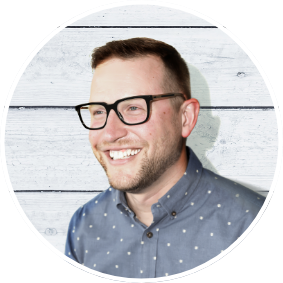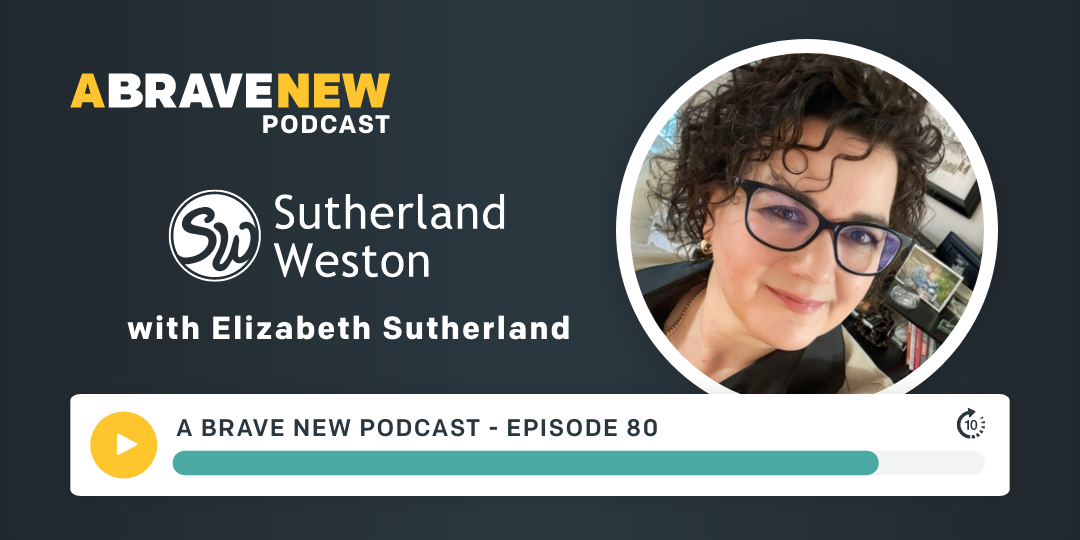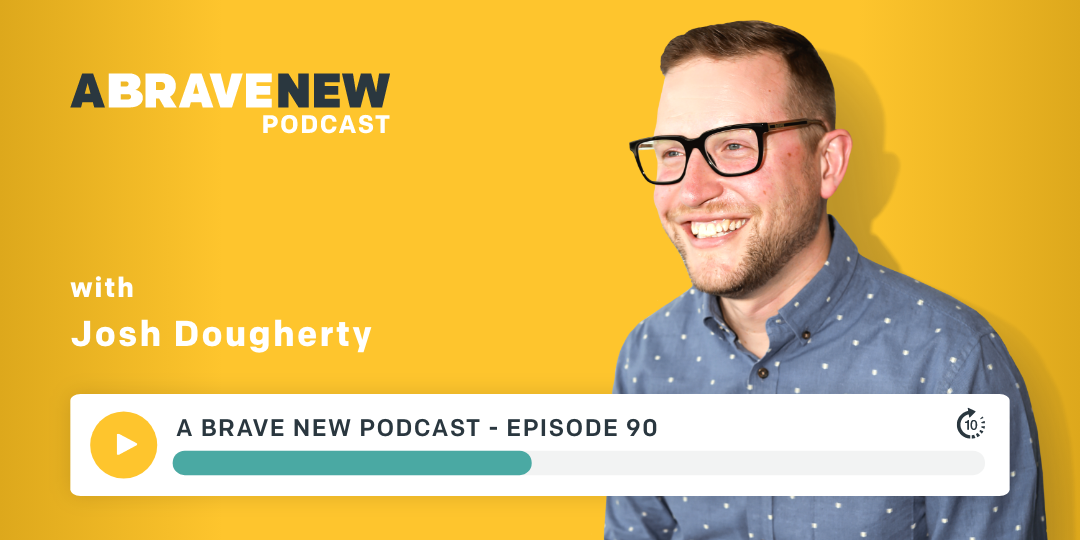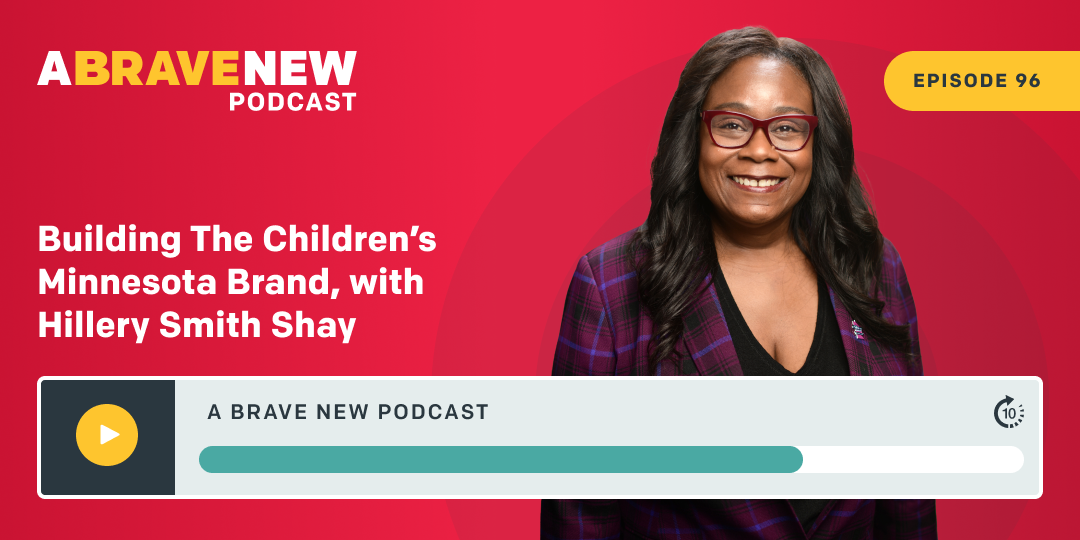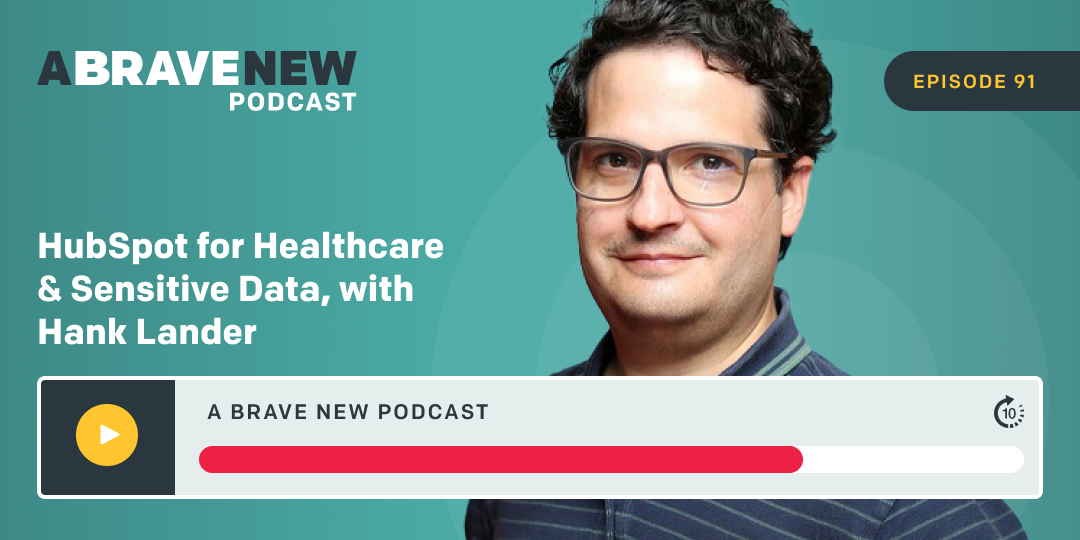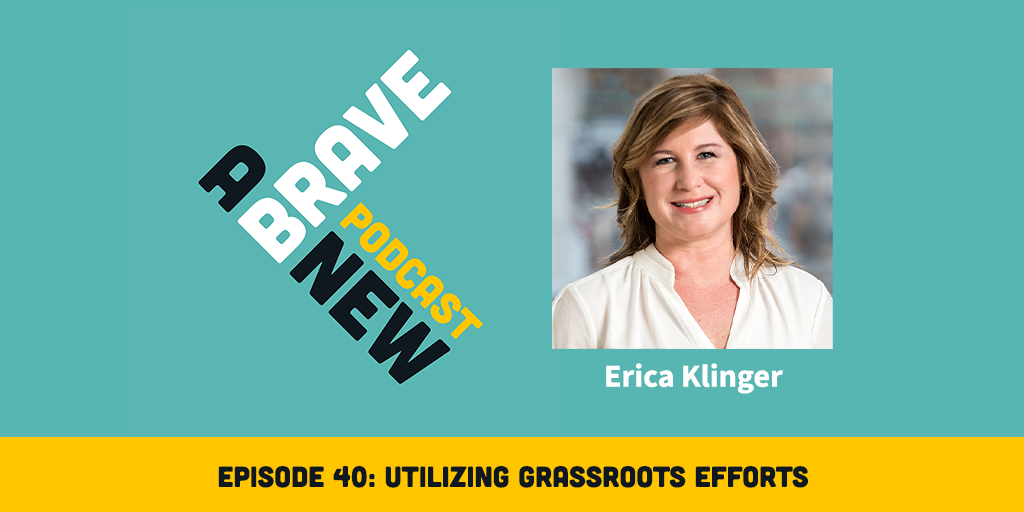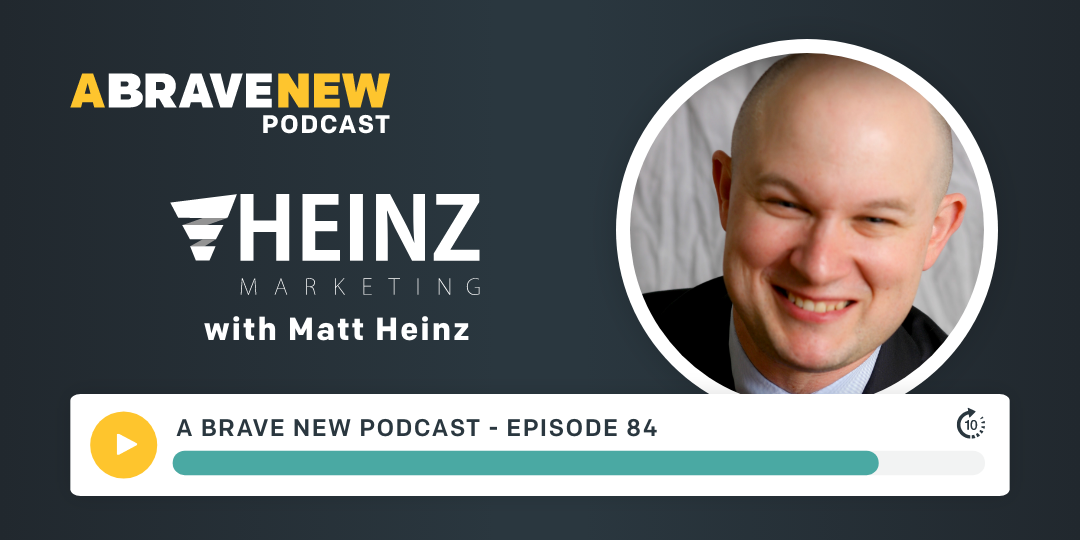Josh Dougherty is a brand strategist, speaker, and the founder and CEO of A Brave New, a Seattle-based B2B digital marketing agency specializing in tech and healthcare. Over the last decade plus, he’s worked with clients to develop unique brands and accelerate business growth using web design, inbound marketing, account-based marketing strategies.
What you’ll learn about in this episode:
- What specific dinosaur fossils you can see at Bozeman’s Museum of the Rockies
- Why marketers are typically more at risk of a slow extinction vs. a sudden one (aka the meteorite that killed the dinosaurs)
- How this slow extinction can be be avoided by embracing continuous learning
- Why books, blogs & podcasts, a community of learning should all play a part in your learning mix
- How to turn your learning into action by implementing just 1 think for each resource you consume
Additional resources:
- 5 Suggested Books To Read Right Now
- No Rules Rules: Netflix and the Culture of Reinvention
- ABM is B2B.: Why B2B Marketing and Sales is Broken and How to Fix it
- The Disruption Mindset
- This is Marketing: You Can't Be Seen Until You Learn To See
- Essentialism: The Disciplined Pursuit of Less
- 5 Blogs To Start Reading If You Don’t Already (not exclusively marketing, also general business to get you to think broadly)
- Marketing Artificial Intelligence Institute Blog
- Neil Patel’s Blog
- McKinsey Blog
- MIT Sloan Management Review
- Content Marketing Institute
- Josh Dougherty on LinkedIn
- A Brave New’s Website
Transcription:
Intro: Welcome to A Brave New Podcast. The podcast, all about how big ideas, brave thinking, and marketing smarts, help businesses grow. Here is your host, Josh Dougherty.
Josh: Hello, and welcome to the latest episode of A Brave New Podcast. My name's Josh Dougherty. I'm so excited to have you here. And today I'm going to dive into a topic that came to mind as I was on a trip this week with my family in Bozeman, Montana. We're visiting Montana because my four and a half year old son is obsessed with dinosaurs. And so today we spent the whole day at the Museum of the Rockies. If you haven't ever been here, the Museum of the Rockies has a ton of dinosaur fossils. Amongst them, the largest collection of Triceratops in the world, Triceratops skull, as well as T-Rex and Allosaurus, a bunch of cool dinos to look at. That may be more information you know about, than you ever cared to know about dinosaurs, but there you have it. So while we were there, I was staring at this massive T-Rex and it got me to thinking, I started thinking about an extinction, right?
We all think about how the dinosaurs were here. They ruled the world, they were fierce, they were vicious. They did all these things. And then one day this massive meteor hits the earth. Some say at like 45,000 miles an hour. It changes the entire environment that these dinosaurs are living in and they all die. But as I looked at this T-Rex I thought about the reality that for most dinos extinction didn't come like that, it wasn't just like the snap of a finger and it's over. In fact, extinction was really, for most dinos, like this slowly, slow over time experience and I'm not talking about individual dinos, but like a specific maybe type of dinosaur. That they became obsolete over time as something bigger, better, more fierce, more vicious came along. Something that's better able to survive. We all know about this, survival the fittest, right?
Well, as I was thinking about this, I thought about this for us marketers, business leaders as well, that we're all in this race, as things are changing quickly around us and the world is changing and we're doing different things. We're in this race to avoid that moment of irrelevance. And as I reflected on this, I think we all think there's going to be this moment in time where we realize, oh my God, I'm no longer effective as a marketer, or I'm no longer able to succeed because of X, Y, Z thing. And then we're going to have to close up shop. And maybe we lose our job running a marketing program, or if you're an entrepreneur, your business closes because the meteor hit and everything's over in a moment.
And as I reflected today, I really thought about the fact that I think for most of us, if we arrive at that point, and I'm not wishing this on you, I'm not wishing it on me, the moment will be much slower than that. There'll be a slow extinction like most dinosaurs experienced. Most dinosaurs went extinct far before that meteorite hit. And it'll be a slow extinction because as technology changes or our product is no longer relevant, maybe we haven't been paying attention to the shifts in audience behavior. Maybe we haven't been realizing that technology's changing at the speed that it is. Maybe all of a sudden the thing that we've always done doesn't seem to work anymore.
But the reality is none of these happen, none of these things happened all at once. They're the results of change that's been happening over a lot of time. We're living in this microcosm of evolution of marketing, survival of the fittest. And we have to be able to see that one small change after another, one small adjustment, one small evolution or iteration is moving us further and further down that path to no longer being relevant.
And I know this might sound kind of like paranoia and I'm not trying to drive paranoia. I'm just trying to help us be cognizant of the reality that things are changing. And if we don't evolve, we won't succeed. Everyone knows this. If we don't evolve, we won't be doing the same amazing work in 10 years that we are doing now. And as I reflected on this, maybe slow, extinction that we all face if we stand still as marketers, I thought about how the perfect counterbalance is actually something that's really near and dear to my heart, which is this idea of continuous learning, a commitment to learning, an investment in learning. Because it's only by making that commitment, making that investment and really accepting the fact that we can never know everything and there's always something new to know, that we can build and foster that curiosity that allows us to be agile.
That allows us to question, maybe things shouldn't be exactly how we've always been doing them. Maybe I shouldn't be running that email program like I did five years ago. You definitely shouldn't be by the way. And learning and committing to learning keeps you aware of the shifts. It allows you to evolve. It allows you to make small changes as you make connections to integrate new ideas. And so today I want to talk about four ways you can use continuous learning to avoid extinction as a marketer and really one fifth thing, which is the concept of really committing to reflection. So the four things I think you can do to avoid that extinction are one, read books. And I'll dive into that in a second. The second are blogs and podcasts. The third thing is implementing one thing after you read or learn anything. The fourth thing is building a community of learning around yourself. And then the one thing that I think beyond the learning that you need to do is this idea of building in reflection, going in a situation.
So let's dive in and talk about books first. I think books are really much maligned today. Many of us focus on blogs, podcasts, all the things that are quick, easy learning. And also marketers will say, you know what, books aren't relevant by the time they go to print and I couldn't disagree more. I think there's a reason that I have this position that books are maybe one of the most valuable things you can make an investment in. And I think you can do this with audiobooks, if you're more of an auditory learner, but nothing encourages you to think deeply about a topic than reading a whole book on it.
Now it's tempting to say, I could learn the same thing in a 300 word podcast or a 300 word blog post, but that's just not true. When you commit to 200, 300, 400 pages on a topic and you go through the ins and outs of what the author's leading you through, the ideas, the topics that they're sharing, you're going to think more deeply about a topic than you have before. And those synapses are going to start firing. You're going to begin making connections. You're going to begin thinking about, Hey, what if I applied what I'm learning here to this other area of my marketing program. And when I think about reading and this idea of continuously learning, I'd encourage you to broaden your perspective on what you can read. It's not just about marketing books, right? Or about business books. I think you need to read those books definitely, current marketing books, current business books.
I think you also need to read about both strategy and tactics, things that are big idea, like people like Seth Godin or the guy who wrote Essentialism. You need to focus on those big ideas, but then you also need to read some stuff that's intensely practical and tactical. We just finished reading the book, Inbound Content by Justin Champion as an agency and this book is super practical about how do you build a content marketing program. Now, some might say it's old and dusty, but I would say that the concepts there, the step by step process is a discipline that all of us could benefit from, can still learn from. And that brings me to my third point of reading stuff that even may be a little old, but you can pull some information out of.
And then I think the final point is that you should read stuff that is unrelated to your practice, unrelated to marketing. I find that I read novels. If I read nonfiction, sometimes I'll make connections that I never would've expected to make. And I can bring those back into my work. Now, all this reading is all about filling your mind, right, about feeling those connections, about understanding the things and how things work, how they come together, how ideas bounce up against each other. But the other, the challenge as we're reading, and probably as we're reading blogs, listening to podcasts, all those types of things, is that our brains are incredibly full. We're bombarded by things on the internet. We're bombarded by our work, by advertising. And so what we need to do, and what I'd really encourage you to do as you embrace this idea of reading, is keeping a journal. I do it on Evernote.
For every book I've read, I'll take notes of the things that I'm thinking about, the connections I've made through the process et cetera, to make sure I have an artifact to go back to and actually think about as I move from the process of bringing in new information and making connections to then putting that information or learning into use. So that's books. Really deep opportunity for deep thinking, opportunity for understanding something deeply, opportunity for really reflecting on a topic and then connecting it into the work you do as a marketer, as a business leader, as an entrepreneur.
The second thing I'd encourage you to do is find a set of blogs or podcasts if you're again, more of an auditory learner where you can dig in and understand the nuts and bolts of where our industry is going, where we'll be in five years, what are the trends? And I encourage you to really embrace following a variety, building in time daily or every other day to read.
And I think this is great for staying current on trends, identifying emerging ideas, understanding how to do something, those how tos of how to effectively do something. And so, as opposed to books where we're really getting deep into a concept, we're really making connections. I think we're operating on more of a strategic level often. Blogs for me are all about staying up to date, understanding what's coming, understanding what are those emerging things I need to be thinking about. And then also finding out how to do the things I already do better. So as we're trying to keep up on trends, I think you need to also free yourself from the perspective of thinking you need to read through the whole blog, leave it behind, step away, read something else. This is all about getting as much of that current trend type information, current information into your head so that you can become a better marketer, understand where things are going, and have intelligent conversations with those around you.
And so again, here, I'd encourage you to keep a journal, to really focus in and write down the connections you're making. Write down the things you want to research more, keep track of things. It's all about how do we get the most information, Kool-Aid in a systematic way so that you can be successful.
And the third learning thing I'd really say is develop a community of learning. If you can find some people, whether it be a book club, your leadership team, your coworkers, peers at different companies who are going to be in that learning process along with you, you're going to be benefiting from the exponential impact of numerous minds working together. Not only will you be encouraged to keep at it and to continue to do that work from an accountability perspective, but four minds together, five minds together, even two minds together are going to be able to do exponentially more to learn to make those connections.
And you'd be amazed when you sit down and talk about a concept, or a thing you just read with someone else, they add a couple ideas and all of a sudden, you're thinking I'm on an entirely different plane. And so not much here to say other than learning shouldn't be a solitary thing. It should be a thing that you can do with others so that you can be encouraged to do it more frequently. And if you're going to do it successfully with others, I'd encourage you to have that curiosity, have a sense of wonder, of openness, of really accepting that you don't know everything and how things will all work together. And going into every conversation that way so that as your friends or your colleagues are talking and you're learning from them, you're able to truly learn from them, because you're here to ask the big questions of how might we do something different.
And so once you read books, you're reading blogs, you have a community you're learning with, the next step is really to commit to implementing one thing. And what do I mean by that? Well, you've probably been here just like me, where you read a book, you're super inspired by it. You think it's going to change your world. You think of the 27 things that you're going to do. You've written them down. So you're going to actually follow through this time, right? And then you get to the end of the day and you've implemented none of those ideas. This is like me so often, or it has been me so often in the past.
So one thing that I've learned as I've read through things, and I'm trying to get better at actually putting information into action, is radically accepting that I'm not going to implement the 27 things. Right now I'm reading a book on how to build a brand that can weather difficult times or challenges. And I've just accepted the fact that I may have 72 ideas out of it. I've already made it through two chapters. And I think I've already written down like a couple pages of notes of things I want to do differently on my next branding projects with clients, et cetera. But what I've accepted is I'm probably not going to implement all those things. I'm going to go through it after I've read the book, read through my notes and choose the one top thing that I think is going to make the biggest impact [inaudible 00:15:12] blueprint and execute that.
And then as I do this on this book, and I've done it on the last few books I've read, and I'll do it on the books that are upcoming, and I do that in the blogs that I'm reading. Over time, I'm able to do one new thing or indicate one new thing into my process, or into my thinking, or into my routine or how I approach marketing. And then over time, I'll find that my marketing program has evolved, that my processes evolved, that everything I'm doing has evolved and it is unrecognizable because by building the one change on top of the next change, on top of the next change is what evolution is all about, right? We're steadily changing, optimizing, improving.
And so do one thing if you don't do anything else from reading a book, listening to that podcast, reading some blogs, one takeaway away and put it into action. Do that repeatedly and you'll end up transforming how you show up as a marketer, transforming your marketing program and transforming your results and building your relevancy. So that's how I would approach continuous education and learning in order to avoid this extinction moment that we all think about. When am I going to become a dinosaur? There's a reason we talk that way. We all have that deep fear. But if we can embrace that we don't know everything, that change is complex, and that the only way we can avoid that extinction moment is to learn and grow, then we're able to move forward, I think purposefully. But before we go today, I want to mention the one last thing I would say that we should do. Everything up to this point is about learning, bringing in ideas, connecting ideas, letting them percolate inside of you.
The final thing I want to encourage you to do as you work towards avoiding this extinction moment and really growing from strength to strength and being the most dominant marketer out there, is to build in moments of reflection where you can think deeply about your service mix. Maybe your processes, maybe the technology, maybe the people on your team, maybe how you're going about your marketing program, your channel mix, how you're measuring results. Set aside some time on a weekly basis. If you can't do it weekly, maybe on a monthly basis to take one of these things that's apparently working, totally fine. It's not broken, right? And just sit there and reflect. Ask yourself the question, how might I do this differently? How might I improve it? How might I change it? And you'll find as you're building in all these inputs from your learning, you're journaling, you're prioritizing, doing one thing differently.
You can reflect on your program, ask that how might we question, and you'll start coming up with ideas that you didn't have before, because you've filled yourself with new information that's going to allow you to not only implement directly what you read, but maybe make a couple leaps forward and implement something that's even better than what you read or learned about. And as you go through this process, I just want to encourage you to think about the fact that just because you're looking at your marketing program and saying, or let's say your results reporting and saying, how might we do this better? How might we do this differently? I want you to remember that different is not a failure versus committing to doing something differently isn't because what you're doing right now is failing.
It could be working great. It could be the strongest part of your program that's the best part to optimize. It's just taking that commitment of really, I think approaching things like a sports coach would approach it saying, I like soccer a lot and you're always thinking about how do we add in the next piece of talent on our team. And the reality is that each time you add a new player, like a great new midfielder, he's going to displace another midfielder. That doesn't mean that the other midfielder wasn't doing great work, but it does mean you can always do better. And I think this was what was continuous learning and then implementing that learning is all about. It doesn't mean that what you're doing currently is bad. It just means you can level up. And by leveling up on a consistent basis, you're able to avoid that extinction moment, not become a dinosaur. And in the end, succeed as a marketer and a leader.
I hope this podcast has really inspired you to embrace continuous learning as a process, not just because it'll help you avoid extinction, but because the process of opening your mind is an amazing journey in and of itself. And so if you need help getting going, I'll share a list of books. I'll also share some podcasts I follow, and hopefully that'll help you begin your own process of learning, evolving as a marketer and preparing for the inevitable disruption that's coming and that we experience every day. Thanks again for joining me today. And I hope to see you next time on our next episode. See you soon.
Outro: Thanks for listening to this episode of A Brave New Podcast. Go to abravenew.com for more resources and advice. If you enjoyed this episode, show us some love by subscribing, rating, and reviewing A Brave New Podcast, wherever you listen to your podcasts.
Similar Articles
OCT 11, 2021

The Beginner’s Guide to Generating Inbound Leads
Marketing doesn’t have to be painfully intrusive, like getting yet another telemarketing call right when you sit down to dinner with your family.
OCT 11, 2021

The Beginner’s Guide to Generating Inbound Leads
Marketing doesn’t have to be painfully intrusive, like getting yet another telemarketing call right when you sit down to dinner with your family.

